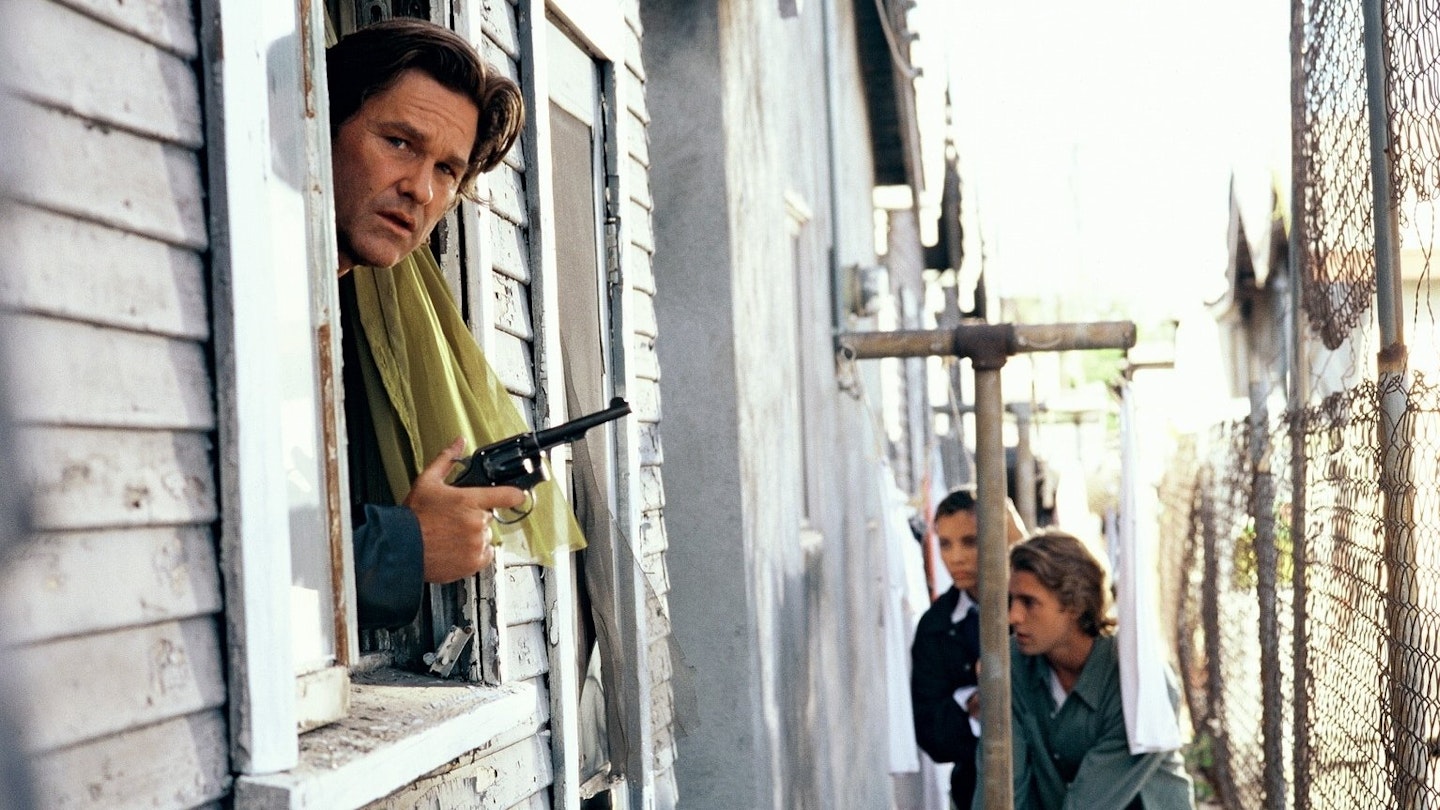In his recent books, James Ellroy has pared down his style to terse dialogue and functional sentences - as close to the blueprint for a screenplay as any novel is likely to get. Ellroy didn't write the screenplay for Dark Blue - that fell to Training Day scribe David Ayer - but he did provide the story outline, which follows the same obsessions with police corruption and macho bonding as his fabled 'LA Quartet' (The Black Dahlia, The Big Nowhere, LA Confidential and White Jazz), bringing them forward to the eve of the LA riots in 1992.
Cop Eldon Perry (Russell) is willing to drag the law down to the gutter level of the villains he wants to get off the streets by any means necessary. In this respect, he's the cast from the same mould as Denzel Washington's Alonzo Harris in Training Day. The crucial, Ellroy-inspired difference is that Perry isn't a loose cannon with his own personal soldiers; he's a third-generation cop, endorsed by the closed-door loyalties of the LAPD's Special Investigations Squad. The SIS operates as a brotherhood with no qualms about blackmailing fellow officers in order to protect their power base.
As Perry comes to realise that he too is just a pawn in his boss's eyes, his battle with personal demons plays against two bigger backdrops: the clean-up operation within the LAPD (personified in the muscular, African-American form of Ving Rhames' incorruptible assistant chief) and the images of a riot-torn city. The direct link between them is impossible to ignore. It's Perry's out-dated, above-the-law attitude that sanctions the four cops who beat up Rodney King, which leads to increased racial tension in the city.
Russell revels in the vicious, immoral side of his character, a father who laughs off an expensive phone bill because the 0900 sex line numbers prove his son "isn't a fag". Hitting a career high, the actor never once pleads for audience sympathy, but his commitment wins us over nevertheless.
